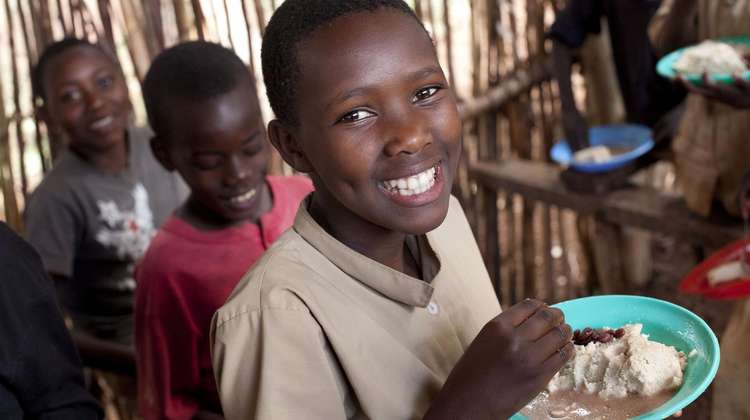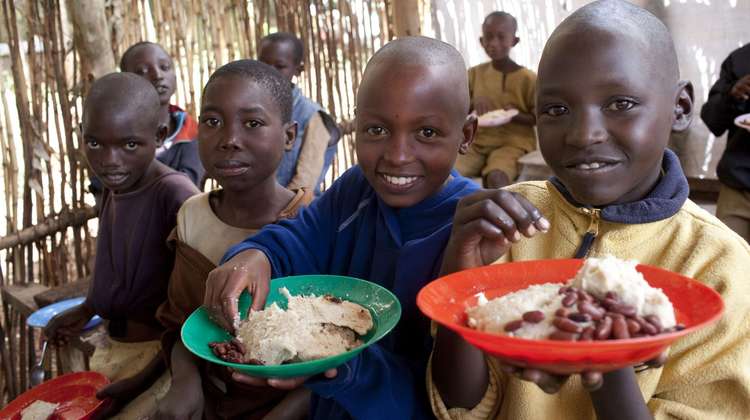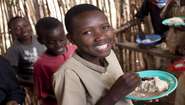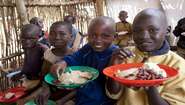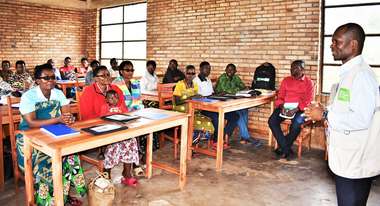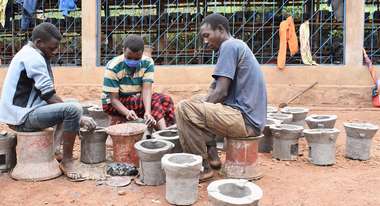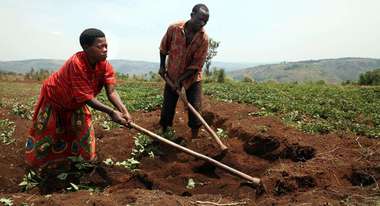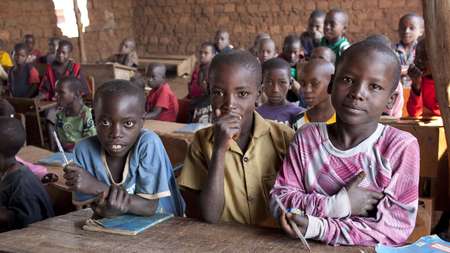
The Best Way to the Brain is Through the Stomach
Around 66 million elementary school children go to school hungry on a daily basis (WFP), almost a third of which live in African countries. However, undernourished children have difficulty concentrating, little strength and endurance, and are more susceptible to illnesses. A lack of education often translates to a life of poverty and social marginalization. In Burundi, one of Africa’s smallest countries, Welthungerhilfe is promoting a school feeding programme that improves access to education.
Burundi forms part of the conflict-wracked region of the great lakes in the eastern reaches of the continent. Since achieving independence in 1962, the country’s development has seen setback upon setback due to various civil wars. Recurring episodes of politically motivated violence are still prevalent today. In addition, many refugees have returned, with people trying to rebuild the country and find a measure of security.
Hunger Hinders Education
Approximately two-thirds of the country’s population cannot afford a nutritious diet (UNICEF). Most families subsist on agriculture, but there is a shortage of arable land. The farmers are often also lacking in means and knowledge to improve their scant yields. The children end up being the primary victims of this situation. Under- and malnutrition stunt growth and even directly impact school enrolment rates. If children get little or nothing to eat at home, they avoid the demanding way to school. The families need their children to work in the fields. This leaves little room for education, especially for the girls, who are also needed in the household. If there is not enough money for everyone, the boys are given priority.
However, if food is offered in school, it serves to encourage children to attend, particularly those from the neediest families. This is the case in the province of Kirundo in the northernmost extent of Burundi. A number of families once forced to flee from civil unrest have resettled here.
With support from the World Food Programme (WFP) and numerous donors, the Welthungerhilfe is supporting school cafeterias for over 98,000 school children in 108 elementary and 17 preschools. Here, they receive a warm meal with locally-grown vegetables on a daily basis. The boys and girls have been healthier since then and attend classes more regularly. In addition, more parents are enrolling their children in school, with the number of female students showing the greatest improvement since the beginning of the project.
Personal Initiative Bringing Success
The contributions of the students’ parents play a deciding role in the project’s success. They help to prepare the meals and to plant and tend to the school gardens. A select committee of parents, teachers, students and local government representatives ensures that the school nutrition programme operates smoothly. In order to disseminate successful practices, school exchanges are encouraged. This allows interested school committees that are still in the planning stages to learn more about the opportunity from experienced neighbouring communities.
The number of school gardens already totals over 100. They grow a variety of vegetables for the school cafeterias, including chayote, a resilient gourd that boasts a high yield and a good supply of vitamins. Other successful crops include cabbage, onions, carrots, zucchini and leeks. Parents learn about new cultivation methods, such as planting in raised, circular gardens. They do a better job containing the fertile soil and require less irrigation water.
Most schools have been able to improve hygiene with latrines, tanks to collect rainwater for washing hands and clean drinking water. Rosette Maniratunga, chairperson of the parents’ committee in Vumbi, greatly appreciates the progress: “In the workshops, we parents learn a lot of things that improve our lives, for example about hygiene. We and our children do not become sick as often. The fact that more children are going to school because of the project is good for the development of the entire region.” To promote school attendance is to invest in the peace of the country. Thanks to the school feeding programmes, the next generation is healthier and better able to learn. It will be able to apply this knowledge to advance the development of Burundi. It approaches conflict with greater awareness and desires a peaceful future.




